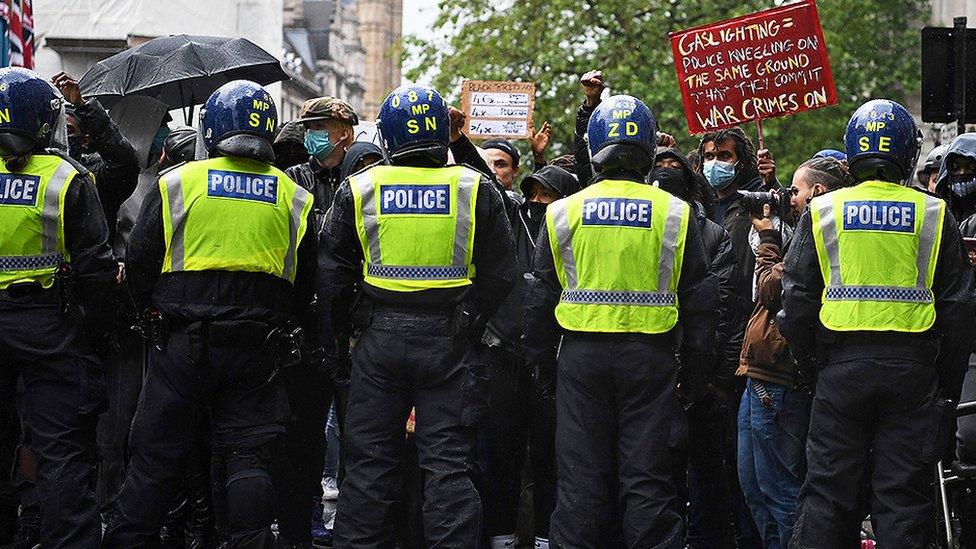Stephen Lawrence murder: Mother shares lessons on overcoming grief
- Published
Baroness Lawrence: "Grief can be a very lonely place"
Not much has changed in the Metropolitan Police since the death of Stephen Lawrence in 1993, his mother Doreen has said.
As the 30th anniversary of his murder approaches, Baroness Lawrence said the wrong attitudes were still common among London police officers.
Baroness Lawrence also spoke about how her 18-year-old son's murder still feels like it happened yesterday.
In a new online course, external, she is sharing her advice on overcoming grief.
Baroness Lawrence told the BBC that the police did not protect her family after her son was killed in an unprovoked and racially motivated attack in Eltham, south-east London, on 23 April 1993.
Two white suspects were charged in the summer of that year but the case was soon dropped, with prosecutors saying the evidence was not reliable.
The killing reignited debates about policing and racial discrimination.
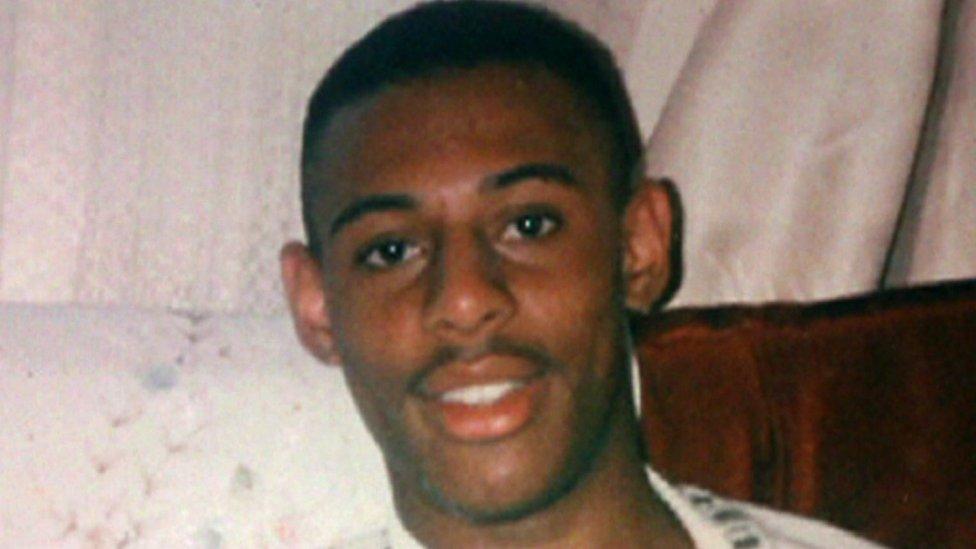
Stephen Lawrence was stabbed to death in an unprovoked attack
In 1999, the Macpherson Report was published. It found there was "institutional racism" within the Metropolitan Police.
In 2011, two men accused of the teenager's murder went on trial after a review of forensic evidence found Mr Lawrence's DNA on the defendants' clothes. They were convicted and received life sentences.
Gary Dobson was jailed for a minimum of 15 years and two months and David Norris for at least 14 years and three months.
The Met said that the force had changed a lot since the 1990s. The new Commissioner, Sir Mark Rowley, has introduced several reforms he says will uphold police integrity.
'It doesn't get easier'
But Baroness Lawrence, who has two other children, said that she still did not believe London's black community is any better protected by the police today.
She wants to see the Met make real change and better address the issues of misogyny and racism that often surface.
Sir Mark, who began his role as Met Police commissioner in September, may not understand the scale of race-related issues in the capital, Baroness Lawrence believes.
She said: "The rhetoric may have changed but attitudes remain. I think people need to see actions. I don't think anybody wants to hear what you're going to do, they want to see what it is you're doing.
"I'll judge him when I see actions."
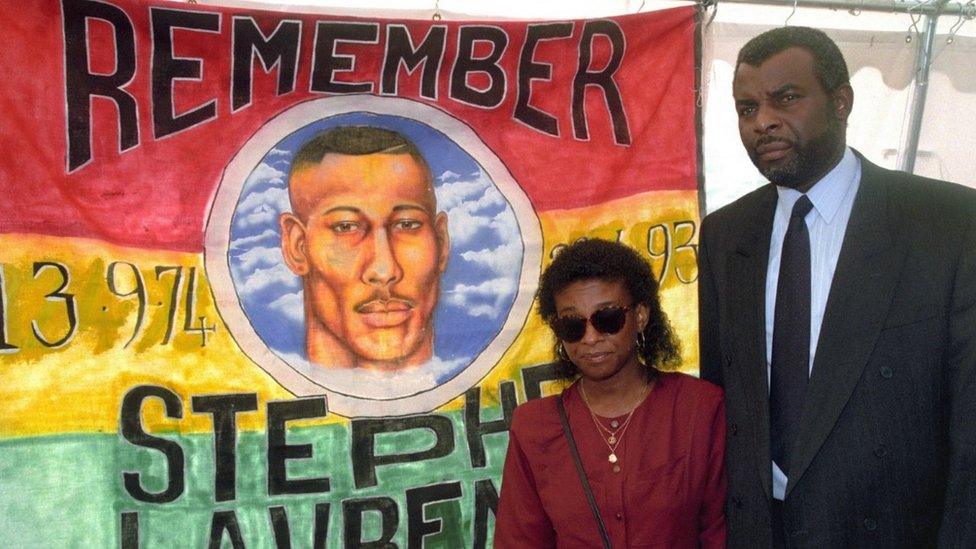
Doreen and her then-husband Neville Lawrence pictured outside Belmarsh Magistrates' Court in 1995
Although nearly three decades have passed since her son was killed, it doesn't get any easier. "The years have not helped," Baroness Lawrence said.
At the time, she didn't seek out therapy as she was worried she might "fall apart" but, in retrospect, she said she realised counselling could have helped her better understand herself.
In her new course on BBC Maestro, an e-learning service delivered by well-known creators, Baroness Lawrence imparts the wisdom she has gained over the past 30 years.
Her main piece of advice to people suffering a bereavement is for them to follow their own path and accept that everyone heals differently.
Every anniversary, Baroness Lawrence visits the place where her son died, as she expects to do again in 2023.
She said the Stephen Lawrence Day Foundation would continue to focus on the positives when looking at his legacy, inspiring young people to bring about change.
A Met Police spokesperson said: "This is not the same Met as it was 20 to 25 years ago. We have improved how we investigate and respond to crimes, how we engage and work with our communities, how we develop and support our own staff, and have made huge improvements in becoming a more representative workforce.
"We now provide mandatory diversity training for all officers and staff which promotes respect and understanding towards all communities and have introduced body-warn cameras so that the encounters our officers have with the public are recorded and are accountable.
"Policing is complex and challenging and we strive to ensure we are fair and just. Where we get it wrong we welcome scrutiny and where there are complaints we take these incredibly seriously and expect to be held to account for our actions, including through independent investigations by the Independent Office for Police Conduct."
The spokesperson added that Sir Mark had announced several reforms to overhaul the Met Police's efforts to identify officers who corrupt the integrity of the force through misogyny, homophobia, sexism and other abuse.
Baroness Lawrence's course, Finding the Inner Strength, external, is available via bbcmaestro.com

Follow BBC London on Facebook, Twitter and Instagram. Send your story ideas to hellobbclondon@bbc.co.uk
- Published1 February 2020
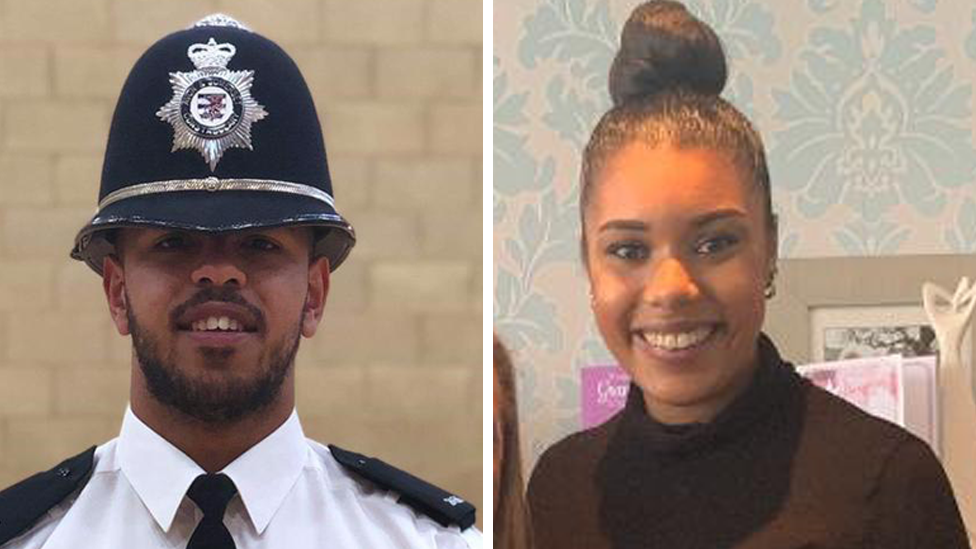
- Published22 April 2019
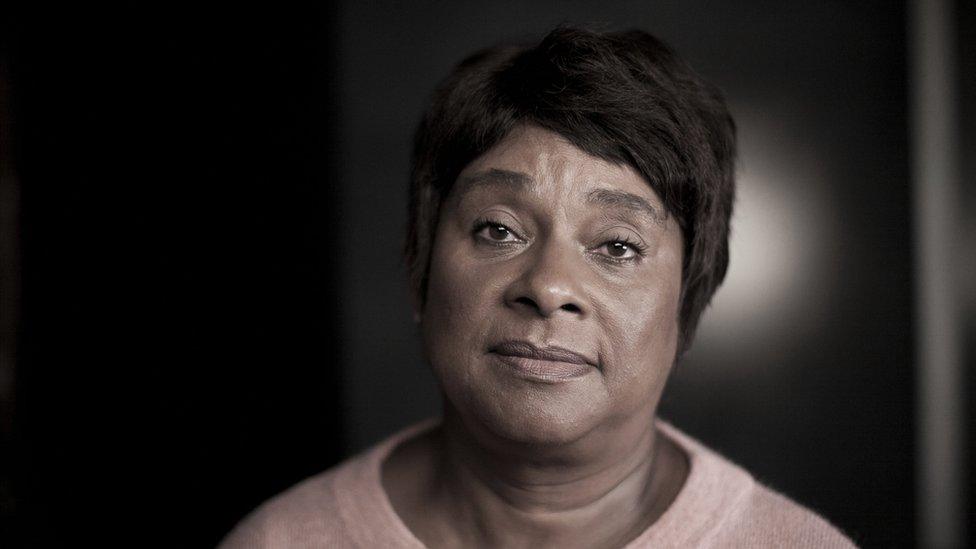
- Published10 August 2020
